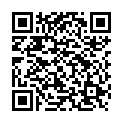|
|
|
| Module code: MST.PDT |
|
|
2V (2 hours per week) |
|
3 |
| Semester: according to optional course list |
| Mandatory course: no |
Language of instruction:
German |
Assessment:
Term paper
[updated 01.10.2020]
|
MTM.PDT (P231-0111) Mechatronics, Master, ASPO 01.04.2020
, optional course, technical
MST.PDT (P231-0111) Mechatronics and Sensor Technology, Master, ASPO 01.04.2016
, optional course, technical
MST.PDT (P231-0111) Mechatronics and Sensor Technology, Master, ASPO 01.10.2011
, optional course, technical
Suitable for exchange students (learning agreement)
|
30 class hours (= 22.5 clock hours) over a 15-week period.
The total student study time is 90 hours (equivalent to 3 ECTS credits).
There are therefore 67.5 hours available for class preparation and follow-up work and exam preparation.
|
Recommended prerequisites (modules):
MST.LAS
[updated 10.10.2014]
|
Recommended as prerequisite for:
|
Module coordinator:
Prof. Dr. Martin Löffler-Mang |
Lecturer: Prof. Dr. Martin Löffler-Mang
[updated 07.10.2014]
|
Learning outcomes:
In this course, students will deepen their knowledge of particle measurement technology (Based on the "Lasermesstechnik" course), especially Laser Doppler Particle Analysis (PDPA). After successfully completing this course, students will thus have mastered the statistics of particle size distributions, the theoretical basics of PDPA and know how to handle a modern PDPA system. They will be able to independently measure and interpret a nozzle spray with PDPA.
[updated 01.10.2020]
|
Module content:
Principles of particle measurement technology:
+ Identifying particles
+ Representing quantity distributions
+ Sets and distribution functions
+ Converting distributions, moments
+ Distribution parameters
+ Approximation functions
+ Dimensional analysis
+ Methods for measuring particle size
+ Sampling, sample splitting
+ Light scattering
Introduction to and theory of PDPA:
+ Interference fringe model
+ Doppler model
+ Frequency shift and multi-components
+ Qualitative and quantitative PDPA model
+ System design
+ Examples of use
+ Current density and concentration
Practical course in the OML lab:
+ Laser power and wavelengths
+ Laser safety
+ Operating the software
+ Independent spray analysis
[updated 01.10.2020]
|
Teaching methods/Media:
Introductory lecture
Independent practical course in groups of 2-3 students
Written report including measuring instructions and data protocol
[updated 01.10.2020]
|
Recommended or required reading:
Löffler/Raasch: Mechanische Verfahrenstechnik. Vieweg
Eichler, Eichler: Laser. Springer
Young: Optik, Laser, Wellenleiter. Springer
Litfin: Technische Optik. Springer
Ruck: Lasermethoden in der Strömungsmesstechnik. at-Fachverlag
Löffler-Mang: Optische Sensoren. Vieweg + Teubner
Löffler-Mang: Handbuch Bauelemente der Optik. Hanser
[updated 01.10.2020]
|


